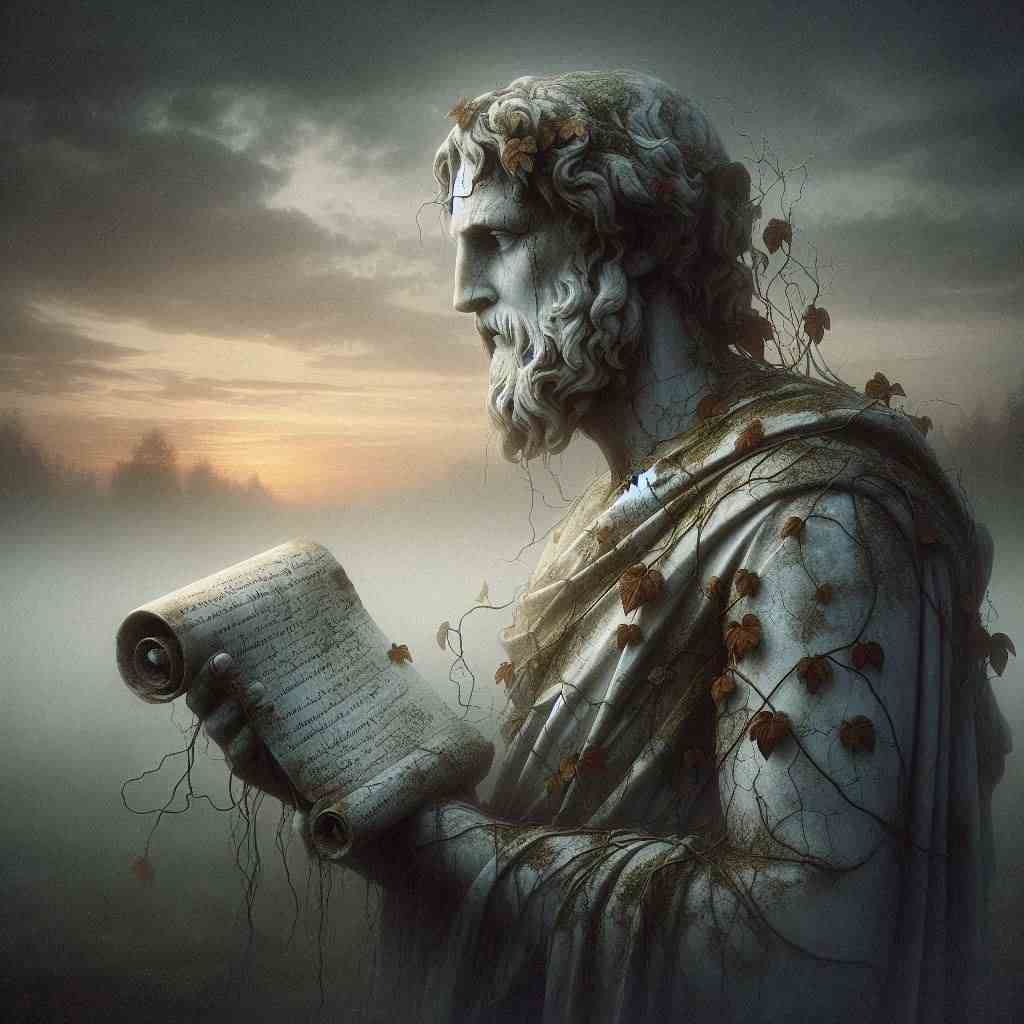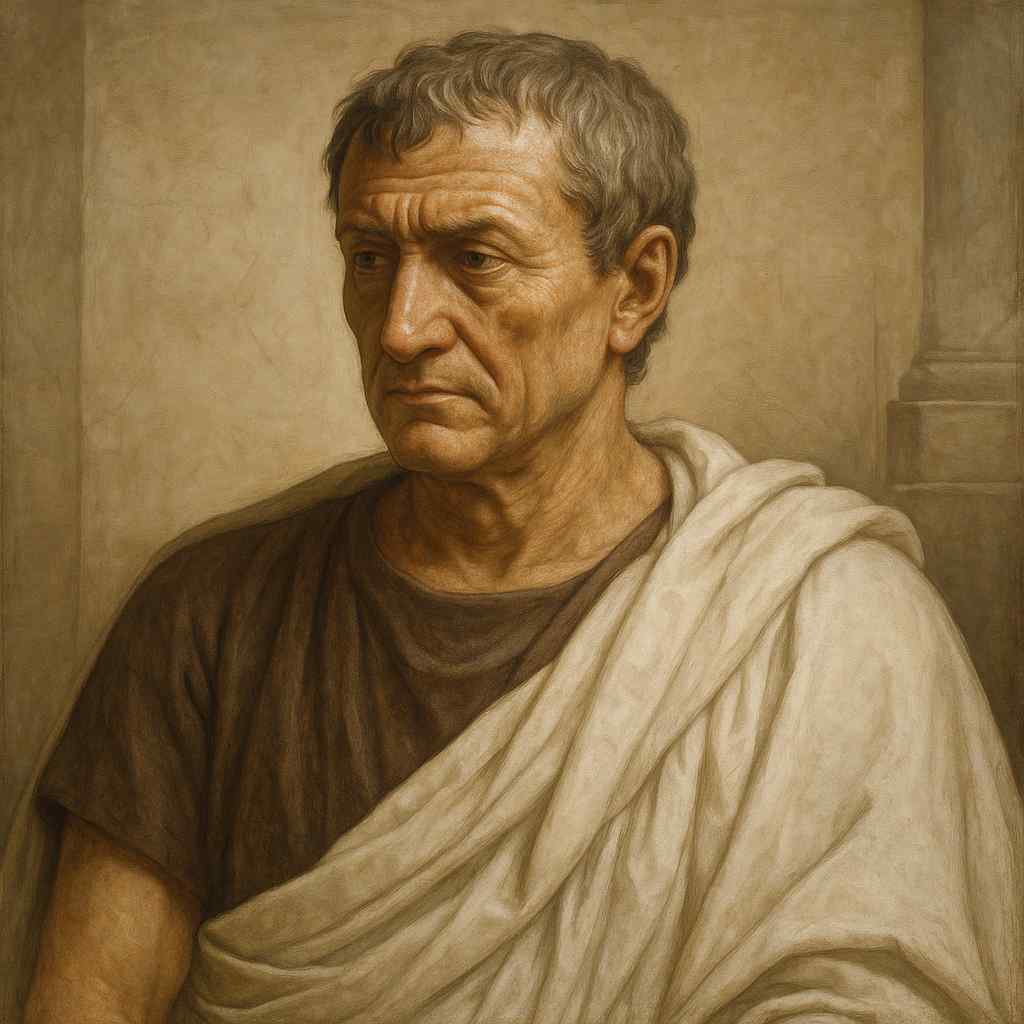Time, the Devourer of All Things (Latin)
Publius Ovidius Naso
43 BCE to c.18

Tempus edax rerum, tuque invidiosa vetustas,
omnia destruitis, vitiataque dentibus aevi
paulatim lenta consumitis omnia morte.
Ergo ubi iam validis aevi virtutibus usus
non habeo corpus, et aetas me destituitque,
tamen in ore manet; memores mihi fama, mei famaeque manebit,
dum loquor atque aliis memoranda loquendaque tradam.
Publius Ovidius Naso's Time, the Devourer of All Things
In Publius Ovidius Naso’s poem "Time, the Devourer of All Things," Ovid reflects on the inevitability of decay and the human desire for immortality, not through the body but through memory and fame. This short but potent meditation on time, mortality, and fame captures Ovid's preoccupation with legacy, a theme common in his work, particularly given his later exile and resulting concern for his own literary endurance.
Introduction
Ovid opens with a powerful invocation of time as an all-consuming force, personifying it as an inexorable devourer that erodes even the strongest of creations. He sets a solemn tone by addressing both tempus (time) and vetustas (age) as active agents of destruction. In doing so, he aligns himself with a classical view that sees time as not merely a neutral measure but as a corrosive force that gradually wears away the substance of existence.
Analysis of Key Themes and Imagery
-
The Destructive Power of Time and Age
The line Tempus edax rerum—literally, "Time, the devourer of all things"—immediately frames time as a predator, consuming everything in its path. Ovid’s use of the verb edax (devourer) suggests a relentless and insatiable appetite, emphasizing the inevitability of decay. Similarly, by invoking invidiosa vetustas (envious age), he ascribes malice to the passage of time, which, out of envy, dismantles everything created. Here, "envious" does not imply jealousy in the modern sense but a spiteful desire to undo and erase. -
Gradual Consumption and Mortality
The phrase vitiataque dentibus aevi (corroded by the teeth of time) employs the visceral imagery of teeth, which metaphorically chew away at the structure of the physical world, wearing it down. This line underlines the poem’s central concept that time does not obliterate in an instant but wears down slowly, a process captured in the line paulatim lenta consumitis omnia morte (you consume all things slowly, with a lingering death). Ovid suggests here that the process of decay is both gradual and inescapable, a slow march toward oblivion that does not discriminate. -
The Aspiration for Immortality Through Fame
Confronted with the decay of the body, Ovid articulates an alternative to physical endurance—fame. He acknowledges that, even though his physical body (corpus) and the vitality of youth (virtutibus) will fail him, his reputation (fama) may endure. This hope is embodied in the line memores mihi fama, mei famaeque manebit (a remembrance of me and my fame will endure), a line where he envisions a kind of dual survival: his self and his fame, preserved in the minds and speech of others. -
Speech as a Medium of Memory
The final line, dum loquor atque aliis memoranda loquendaque tradam (while I speak and entrust memorable words to others), emphasizes the role of language and speech as conduits for fame. Ovid sees his poetry and, by extension, all spoken or written words as vehicles to defy temporal decay. By entrusting memorable words to others, he passes on his legacy, reinforcing his hope that while the body deteriorates, the voice—particularly the poetic voice—may transcend time.
Conclusion
In "Time, the Devourer of All Things," Ovid confronts the inevitability of mortality and proposes fame as a means to achieve a semblance of immortality. Through vivid language that animates time and age as destructive forces, he paints a portrait of human vulnerability to decay. However, he offers a measure of defiance through poetry, suggesting that words and reputation can preserve an aspect of the self. Thus, Ovid’s poem is as much a meditation on human limitations as it is a testament to his enduring hope that art, particularly his art, might allow him to outlast even the most formidable devourer—time itself.
This text was generated by AI and is for reference only. Learn more
Want to join the discussion? Reopen or create a unique username to comment. No personal details required!



Comments
No comments yet. Be the first to comment!